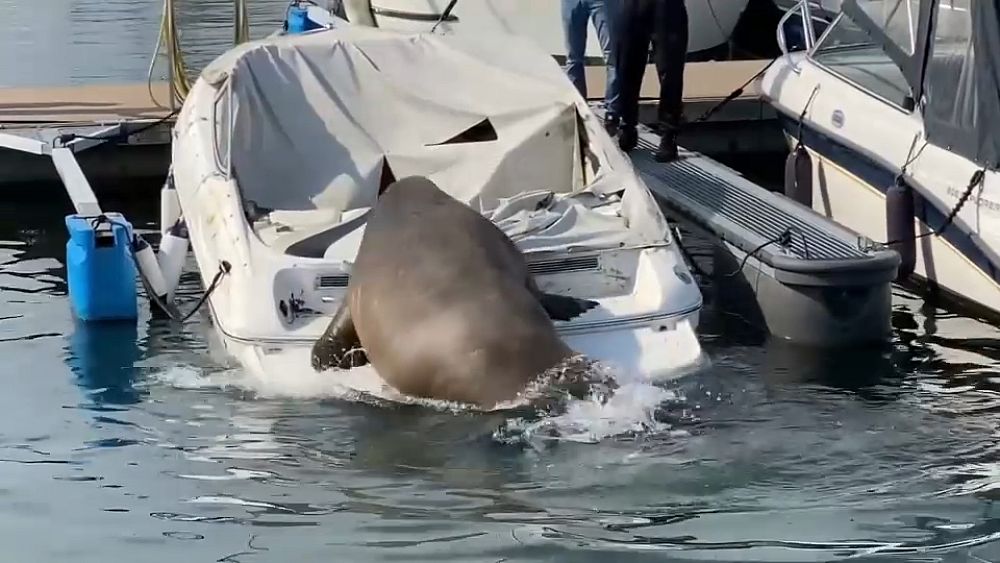Freya the walrus: Boat-sinking giant gets up to mischief in Oslo

A cheeky boat-sinking walrus has become a hit with locals and tourists alike in Norway, although some aren’t too happy about its mischief.
The hefty marine mammal was spotted in Denmark, Germany, the Netherlands and Scotland before eventually ending up in Oslo’s Frognerkilen bay.
Far from her native home in the Arctic circle, the 700-kilogram (1,500 pound) animal has sunk several small boats and inflatables anchored along the Nordic coast, after trying to get up and lounge on them.
Freya, who is named after a Norse goddess, has created a social media storm, with videos circulating online of her (often unsuccessfully) clambering aboard un-walrus-worthy vessels.
Yet, not everyone is impressed.
Two local boat owners told the German broadcaster Deutsche Welle they wanted Freya gone, after she was filmed damaging some boats in the town of Kragerø earlier this summer.
Many other people, however, have had the exact opposite reaction to Freya’s antics and have flocked to the harbour to see the tusked icon in action.
Norway’s Directorate of Fisheries has warned spectators to keep away from Freya after multiple paddlers came dangerously close to the animal in a bid to snap some photos.
Researchers from the University of South-Eastern Norway say Freya is not accustomed to crowds and they can be stressful and overwhelming for her.
“She doesn’t get any peace,” walrus expert Rune Aae told Norwegian News Agency NTB. “She needs to relax for up to 20 hours.”
“When she is constantly stressed out by people and their presence, it is not good for her,” continued Aae.
Ideas have been proposed to cordon off parts of the dock in Frognerkilen bay to onlookers, although they are not in place yet.
Researchers have built the walrus her very own customised floating platform, in an attempt to provide her with some respite and protect the boats in the area, though the initiative hasn’t completely lured the walrus away from people’s property.
“It prefers something that is easy to get into,” said biologist Kjell Isaksen.
Boats with a low stern and where there is not a large outboard engine, which could block her path, are Freya’s prefered targets.
“Those who have low boats where the walrus can easily get into, here at Frognerkilen, they should consider whether it’s possible to turn the boat and moor with the stern towards the quay,” Isaksen added. “Then there is far less chance of the walrus getting into the boat and causing damage.”
Researchers are hopeful that the 1,500-pound (700 kilograms) mammal will grow accustomed to the dock over time, until they can safely move her back to the Arctic circle.
